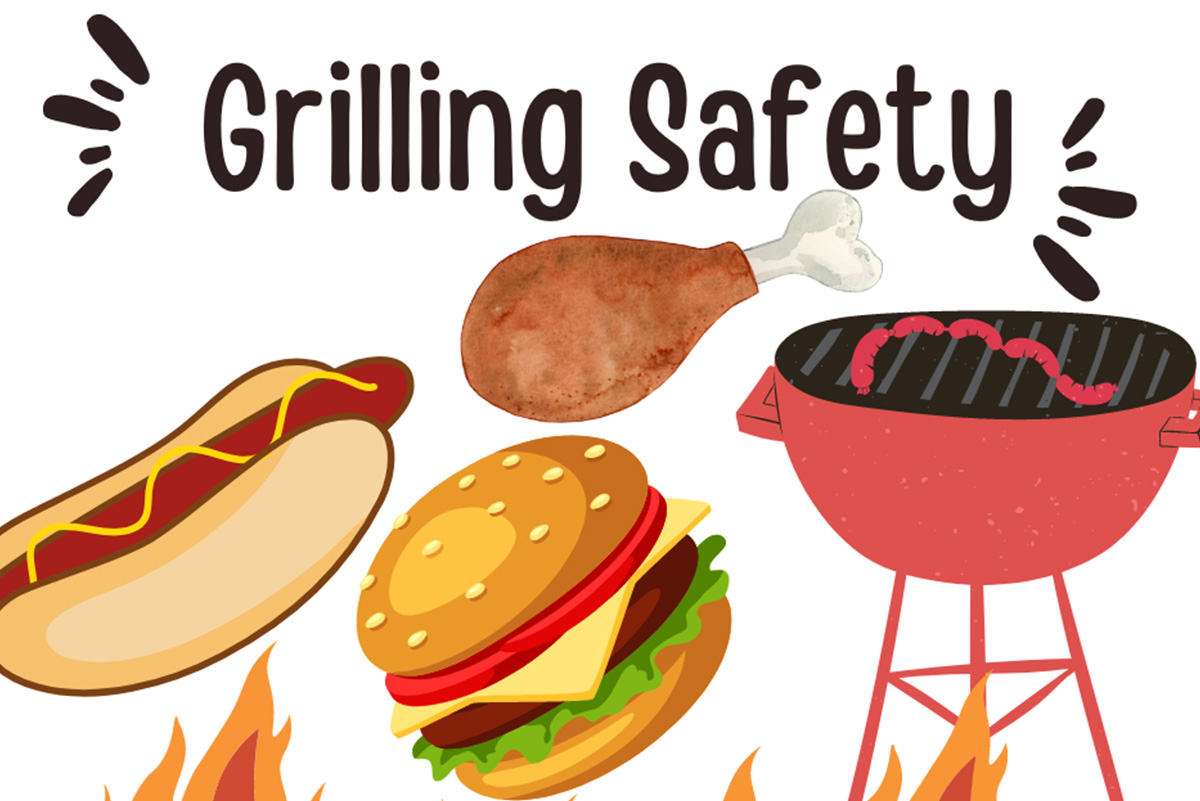Food Safety For Grilling Season
June 28, 2023Gain valuable insights into common questions related to food and the grilling season.
Now that summer is in high gear, more people are firing up the grill and hosting cookouts. Grilling food not only offers a healthy option for cooking meats and veggies but also brings people together to enjoy great food. Although grilling is healthier than you might expect and serves as an opportunity for socializing, it is essential to prioritize food safety. Emily Jones, a registered dietitian at St. Mary's, has provided valuable insights into common questions related to food and the grilling season.
1. What are the most common misconceptions about preparing food on a grill?
“I think one misconception is that it's not good for you. Cooking meat and vegetables in different ways let us enjoy new foods even more, even if it's a little burnt. Baked gets boring. Even just fire-roasting a red bell pepper and then peeling off the black skin creates such a unique, sweeter flavor to add to salads, soups, and more. Another myth may be that it requires a lot of work. My favorite grill to use in the summer is the PitBoss electric smoker because I can rotate my meat and vegetables around to cooler sides and top racks to create more smoke flavor and tenderness while stepping away.”
2. How long can meat sit in the fridge to marinate?
“Meat should only sit in the fridge to marinate for 12-24 hours but this is very specific to the marinade. For example, a more acidic marinade, such as chicken in buttermilk or steak in balsamic vinegar, will begin cooking and tenderizing the meat. For these marinades, I would recommend a maximum marinade time of around 6-8 hours and doing half acid, half water (such as 1 cup buttermilk, 1 cup water) to ensure the meat doesn't get tough or too acidic. Dry rubs can sit for 12-24 hours.”
3. How often should the grill be cleaned when cooking meats?
“Just like cleaning your kitchen after preparing a meal with meat, the grill and its preparation area need to be cleaned after every use. After the grill has cooled, a quick brush with a tough scrubber pad or brush, without metal bristles as they may leave behind dangerous bits, will do the trick. This guarantees no food is left behind for the next go-round. Also, use grill-specific cleaner after 3-5 uses and follow the directions closely. When grilling multiple meats at one time, use separate tongs to prevent cross-contamination. You don't want to flip that raw chicken to its other side before you grab the crispy salmon on the cedar plank.”
4. Is it necessary to get a meat thermometer and why?
“To keep food safe and enjoyable this summer, invest in a meat thermometer and some alcohol swabs to clean after each check. If you are new to grilling different types of meat, clear juices are not the best guarantee of doneness. Burgers may be more difficult to check with a thermometer, so the thinner the patty, the quicker it will cook. Practice makes it perfect. The more you check the temp while grilling, the more comfortable you are at noticing when poultry, beef, and seafood is ready!”
Learn more about wellness and nutrition, including healthy recipes.




